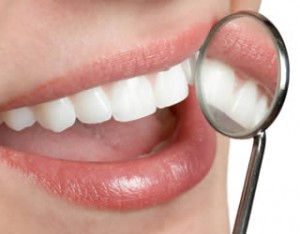The Use Of Bonding In Dentistry
This composite material has many uses, both practical and cosmetic.
 Over time, dentistry has become more sophisticated. From invisible braces, dental implants that replace the root as well as the crown part of the tooth, and computerised technology that speeds up processes whilst also providing a greater degree of accuracy and reliability, it is safe to say that things have changed for the better in the world of dental care.
Over time, dentistry has become more sophisticated. From invisible braces, dental implants that replace the root as well as the crown part of the tooth, and computerised technology that speeds up processes whilst also providing a greater degree of accuracy and reliability, it is safe to say that things have changed for the better in the world of dental care.
It is interesting though that some forms of dental care have changed little over time and are relatively ‘basic’ in their application. They can still have a useful role to play though and one that is often used at our handy Chelmsford dental surgery is a case in point, and that is bonding.
What is bonding?
Also sometimes referred to as ‘cosmetic bonding’ as it is often used for this particular purpose; dental bonding is a composite resin that, as the name suggests, bonds, or sticks, to surfaces like the teeth. It requires no invasive treatment to apply it in most cases and offers a quick and relatively straightforward way to a number of problems.
What can it be used for?
Bonding is often used to cosmetically improve the appearance of teeth. It can be used to ‘fill in’ those tiny chips and cracks that can appear over time through wear and tear but that are not deep enough to cause any structural problems for the tooth. The bonding can be made in a shade to match the natural tooth and this helps to make it blend in well. This is especially beneficial when it is used to improve the colour of a tooth so that it matches those around it.
Dental bonding can be used to close small gaps between the front teeth (diastema) in some situations and also, potentially, to reshape or lengthen the appearance of a tooth. It can also be used for smaller fillings of the tooth so that they can barely be seen. Finally, where the gums have receded, it can be applied to protect the now exposed part of the tooth which would otherwise be potentially more vulnerable to decay and sensitivity.
How effective is it?
Bonding can be used effectively, but it does have some limitations. It is a porous material and this means that it can stain and therefore become discoloured fairly easily. If you smoke or drink a lot of coffee or tea, you may well find that the bonding becomes discoloured over time. Where it has been used to protect teeth that have suffered from enamel damage, you may wish to discuss the longer lasting and more stain resistant teeth veneers with the cosmetic dentist here at Blue Sky Dental.
Depending on what it has been used for, bonding will often not have the longevity of some other restorative methods. It is a relatively cost-effective and easy to apply solution though and can be excellent as a ‘stop gap’ in situations where longer term solutions need to be sought. To use veneers again as an example, bonding can be used both to reduce sensitivity and provide a replacement for the damaged tooth enamel. A patient may be in two minds whether to have dental veneers as a permanent solution to this problem, but seeing and feeling the difference that this improvement can bring, may help to give them confidence that the longer term solution of veneers is a good option.
What is the bonding procedure?
The first step is to make sure that this is the right solution for your own situation and our Blue Sky Dental team will be able to advise. Once confirmed, the dentist will ‘etch’ the surface of the tooth in order to roughen it for better adhesion. A suitable shade of bonding material will then be prepared. A conditioning liquid is then applied to improve the bonding quality and the material, which is a form of putty, is then applied and shaped. Finally, a UV light is used to harden the bonding material sufficiently before you leave the practice.
You will be given full aftercare advice by the dentist but you should avoid tea and coffee especially for the first 48 hours to prevent premature staining.
Bonding offers a straightforward solution to a number of dental issues but we also have a wide range of more permanent restorative and cosmetic treatments too. For more information about these, or any other oral care issues, please call our Chelmsford clinic today on 01245 211070.

Leave a Reply
You must be logged in to post a comment.